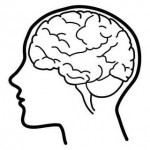 Research: Research on the brain’s affective filter demonstrates that a student’s emotional state is closely linked to their ability to learn. When the brain is in a positive emotional state students can learn more effectively and at higher levels of cognition. Neurologist Judy Willis concludes, “With such evidence-based research, the affective filter theories cannot be disparaged as ‘feel-good education’ or an ‘excuse to coddle students’—if students are stressed out, the information cannot get in. This is a matter of science.”
Research: Research on the brain’s affective filter demonstrates that a student’s emotional state is closely linked to their ability to learn. When the brain is in a positive emotional state students can learn more effectively and at higher levels of cognition. Neurologist Judy Willis concludes, “With such evidence-based research, the affective filter theories cannot be disparaged as ‘feel-good education’ or an ‘excuse to coddle students’—if students are stressed out, the information cannot get in. This is a matter of science.”Practice: Our program incorporates the elements of an affective education, meaning that we are just as concerned with the personal and social development of the individual as we are with their academic or cognitive development. We know that when these are out of balance negative emotions can present themselves in a number of ways. We work to minimize the stress and anxiety around schooling and keep positive attitudes about learning and school.